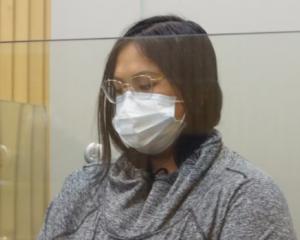Preliminary new data shows almost 16,000 patients had GPs' referrals for publicly-funded specialist consultations rejected in three months last year.
The new data compiled by the district health boards (DHBs) for the Ministry of Health shows the numbers of patients referred to specialists by GPs who were accepted or declined. The data is broken down by DHB areas from July to September 2015. It shows of the 158,214 referrals, 87% had the referrals accepted. Of the 16,000 who were declined, 7229 were sent back to their GPs because, while a consultation would have been valuable, it was beyond the board's capacity to accept it.
The new data is part of an attempt to assess concerns patients are missing out on timely specialist care because of resource constraints.
Ministry of Health clinical leader on prioritisation Dr Chris McEwan said there were still gaps in some of the DHBs' data so the figures would change and should not be used to compare DHBs. However, it was the first time some of the information had been gathered and indicated where demand was not being met.
Health Minister Jonathan Coleman said that as the data built, he expected the numbers sent back to their GPs because they did not meet the threshold to rise to 10 to 15%.
"Patients will be interested to know what is happening in their DHB - it's important to provide transparency. For DHBs and primary care, this data will help them to further improve services."
He said DHBs were already refining their referral management systems, administration processes, and communications with patients.
On the information available, of the Auckland-based DHBs Counties-Manukau had the highest rate accepted. On average over the three months, 95% of referrals were accepted for specialist consultation. In the Auckland DHB area, about 88% were accepted and in Waitemata 85%.
In other areas, Wairarapa had the highest recorded rate of acceptances - at 100% - while Hutt Valley and the Southern DHBs had the lowest, ranging from 71% to 88%.
Nationally, there were 158,214 referrals for an assessment, 87% were accepted, and 5% were declined as they did not meet the threshold. That meant the patient would benefit from a specialist assessment but it was below the DHB's capacity threshold.
It is part of a new data system named 'National Patient Flow' aimed at measuring whether patients are getting the services they need. It will eventually provide clear information on the number of patients referred for specialist services, the outcome of the referrals and the time it takes for patients to access care. The next phase will look at referrals for inpatient elective surgery and cancer treatments.












